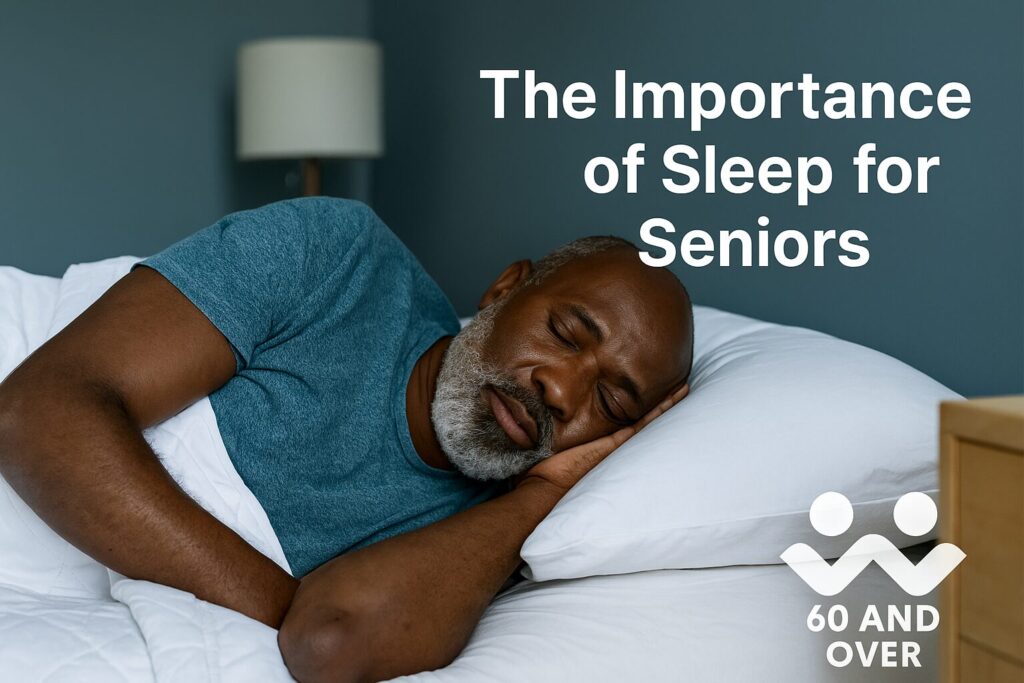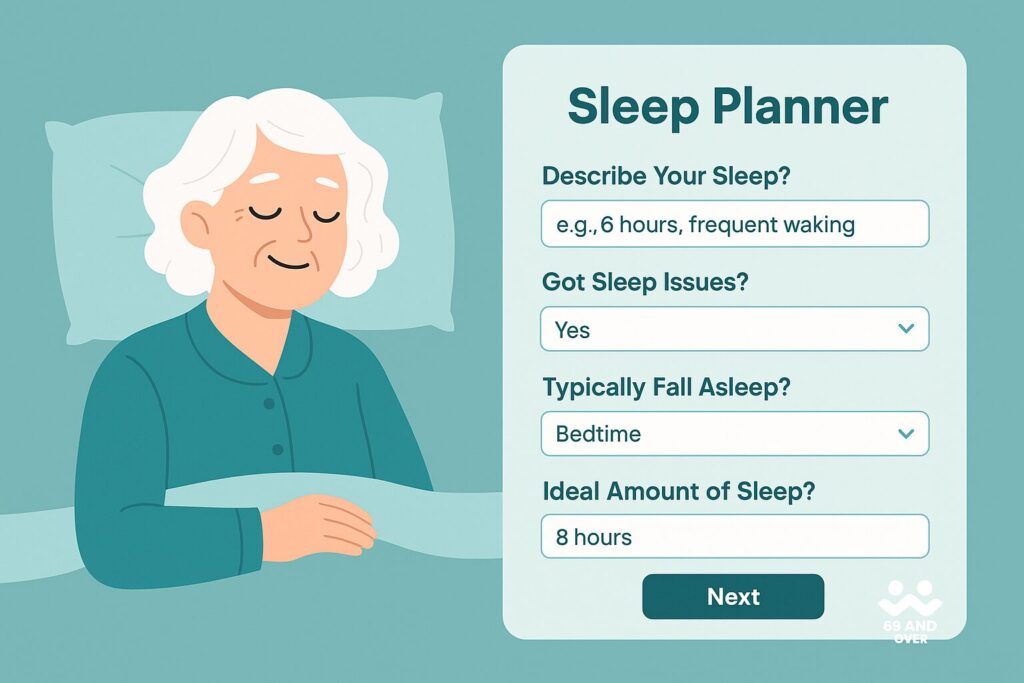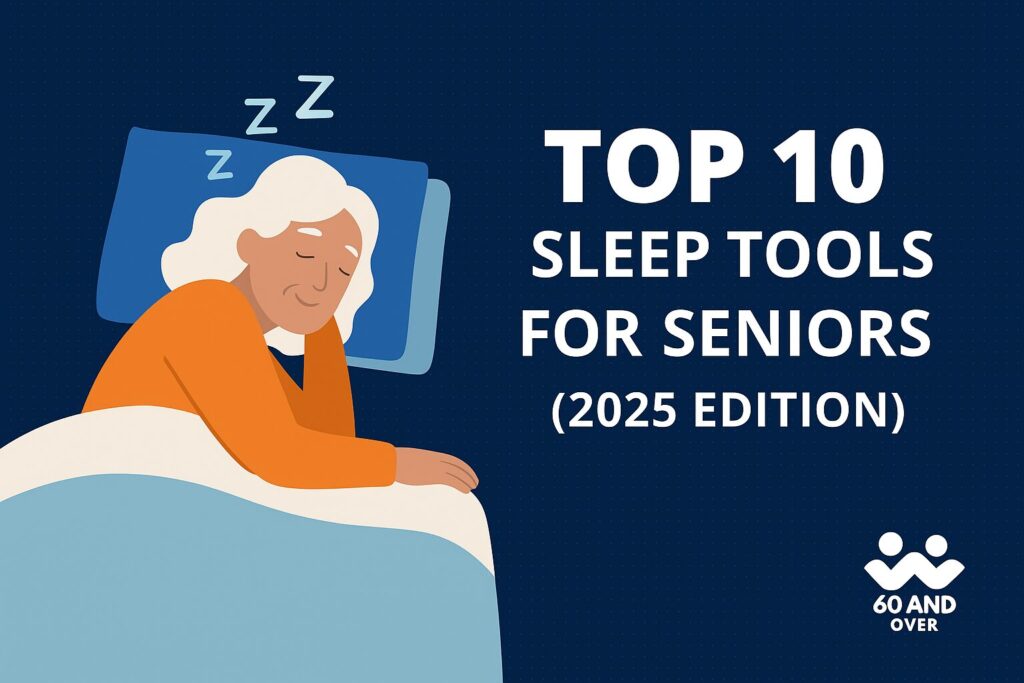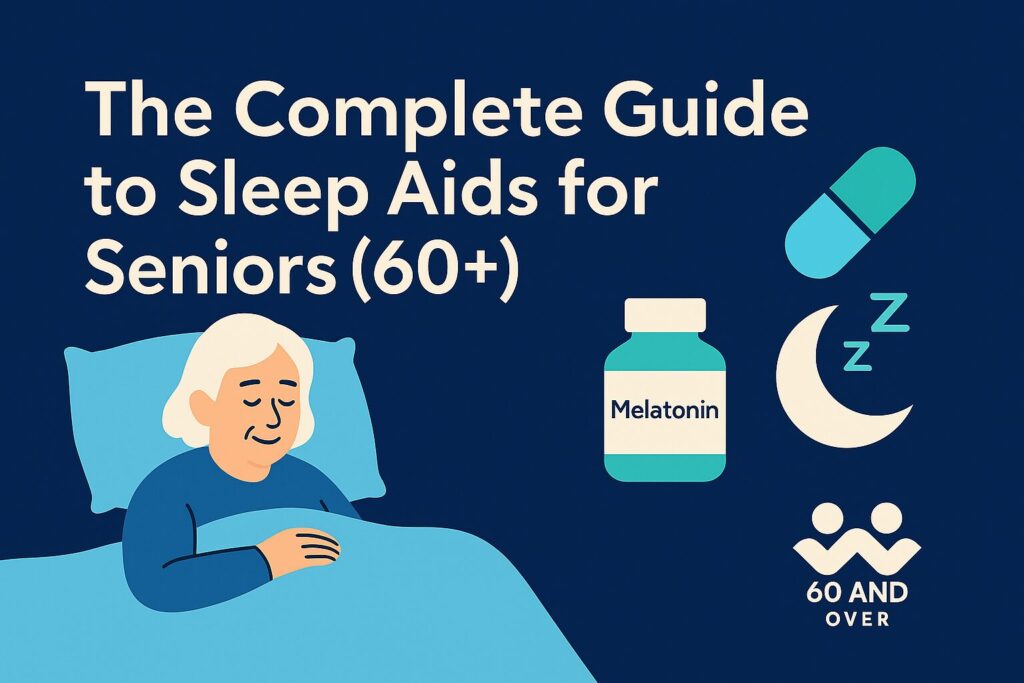Safe Use, Side Effects, and Benefits Explained for Adults Over 60.
Sleep often changes with age. Many older adults find themselves lying awake at night, waking up too early, or struggling with restless sleep that leaves them tired the next day. For some, the problem isn’t stress or lifestyle—it’s biology. As we get older, our bodies naturally produce less melatonin, the hormone that helps regulate sleep. That’s why melatonin supplements are among the most common over-the-counter sleep aids seniors consider.
But is melatonin safe after age 60? How much should you take, and when? Let’s look at what the science says about melatonin, the right dosage for older adults, and whether it’s worth trying for better rest.
What Is Melatonin?
Melatonin is a hormone made by the pineal gland in the brain. It’s often called the “sleep hormone” because it helps signal to the body that it’s time to wind down. Levels rise in the evening as the sun sets, stay elevated during the night, and fall again in the morning.
In younger adults, melatonin follows a strong rhythm. But as people age, the brain produces less melatonin, and the timing can shift. This change is one reason many seniors notice lighter, shorter, or more fragmented sleep.
Melatonin supplements are designed to support the body’s natural hormone production. Instead of sedating you like a sleeping pill, melatonin works more like a clock reset—it helps tell your body when to sleep.
Why Seniors May Benefit from Melatonin
Older adults often struggle with sleep onset insomnia (difficulty falling asleep), early waking, or disrupted sleep schedules. Melatonin can help in several ways:
- Compensating for age-related decline. Natural melatonin levels drop with age, especially after 60, so supplementation can restore a more normal rhythm.
- Adjusting circadian rhythm. Seniors who fall asleep too early in the evening or wake too early in the morning may benefit from melatonin’s ability to shift the body clock.
- Helping with jet lag. For older adults who travel, melatonin can reduce jet lag and re-set sleep patterns.
- Supporting dementia patients. Studies show melatonin may reduce nighttime restlessness in those with Alzheimer’s or other dementias, though more research is needed.
Safe Dosage Guidelines for Adults Over 60
One of the biggest questions seniors have is “How much melatonin should I take?”
- Start Low. Research suggests older adults often do best with 0.3 mg to 2 mg taken 30–60 minutes before bedtime.
- Avoid High Doses. More is not better. Taking 5–10 mg can actually cause side effects such as daytime grogginess, dizziness, headaches, or even make sleep worse.
- Time It Right. Melatonin works best when taken consistently at the same time in the evening. For circadian issues like waking up too early, timing may need to be adjusted (sometimes taking it earlier in the evening helps).
- Sublingual or Extended-Release Options. Some seniors find sublingual (dissolved under the tongue) melatonin helps with falling asleep, while extended-release tablets may help with staying asleep.
Always start with the lowest effective dose and adjust only under guidance from a doctor.
Benefits of Melatonin for Seniors
Research has shown several benefits for older adults:
- Faster Sleep Onset. Seniors who struggle to fall asleep may drift off faster with a small melatonin supplement.
- Improved Sleep Quality. Some studies suggest melatonin improves overall sleep efficiency, making nights less fragmented.
- Reduced Nighttime Awakenings. Extended-release melatonin may help older adults stay asleep longer.
- Support for Shifted Sleep Patterns. If you tend to fall asleep very early and wake up at 3 or 4 a.m., melatonin can help shift the cycle later.
- Non-Habit Forming. Unlike prescription sedatives, melatonin is not addictive and doesn’t create withdrawal problems.
Risks and Side Effects
Melatonin is generally considered safe, especially in low doses, but older adults can be more sensitive to its effects. Possible side effects include:
- Daytime sleepiness or grogginess
- Dizziness or lightheadedness
- Mild headaches
- Stomach upset
These usually resolve with lower doses. However, seniors should be extra cautious about side effects that could increase fall risk, such as dizziness or morning grogginess.
Who Should Avoid Melatonin?
Melatonin isn’t right for everyone. Seniors should avoid or use caution if they:
- Have diabetes (melatonin may affect blood sugar control).
- Take blood pressure medications (melatonin can interact with antihypertensives).
- Use blood thinners such as warfarin.
- Have autoimmune conditions or seizure disorders.
- Are already on other sleep medications.
If any of these apply, it’s best to talk to a healthcare provider before trying melatonin.
Safer Alternatives and Complementary Approaches
Melatonin works best as part of a larger plan. Many seniors see the best results when they combine a supplement with:
- Good sleep hygiene (consistent bedtime, cool dark room, no late caffeine).
- Light therapy in the morning to reinforce circadian rhythm.
- Relaxation techniques such as deep breathing or meditation.
- Magnesium or herbal options (like valerian root) if tolerated.
In other words, melatonin is not a cure-all. Think of it as a tool, not a standalone solution.
Conclusion
For many adults over 60, melatonin can be a safe and effective way to improve sleep—especially when natural production has declined. The key is starting with a low dose, using it consistently, and talking with a doctor to check for interactions.
When used wisely, melatonin may help seniors fall asleep faster, stay asleep longer, and wake up feeling more refreshed.
Melatonin for Seniors: Frequently Asked Questions
Q: What is the safest melatonin dosage for seniors over 60?
A: Most experts recommend starting with a very low dose — between 0.3 mg and 2 mg, taken 30–60 minutes before bedtime. Higher doses are not usually more effective and may increase side effects such as morning grogginess or dizziness.
Q: Can seniors take melatonin every night?
A: Yes, melatonin is generally considered safe for short-term nightly use, but older adults should always consult a doctor before long-term use. Some may only need it occasionally, while others benefit from consistent dosing.
Q: What are the side effects of melatonin in seniors?
A: Possible side effects include daytime drowsiness, dizziness, headaches, or stomach upset. Seniors should be especially careful about balance issues, as dizziness could increase fall risk.
Q: Who should avoid melatonin?
A: Seniors with diabetes, blood pressure problems, or those taking blood thinners should use caution. Anyone with autoimmune conditions, seizure disorders, or who takes other sleep medications should check with a doctor first.
Q: Is melatonin better than prescription sleep medications?
A: Melatonin is not a sedative and works differently from prescription drugs. It helps regulate the body’s internal clock, making it useful for sleep onset and circadian rhythm problems. It is safer and non-habit-forming but may be less powerful than certain prescription medications.




